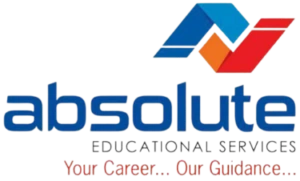How to Choose the Best Course After 12th
With countless career paths opening up after Class 12, students today face a more complex and personal decision than ever before. The course you choose will likely shape your academic experience and influence your career direction. It shapes not only your education but also your future career and lifestyle. However, with so many options available today—from engineering and medicine to design, business, and humanities—it’s easy to feel overwhelmed. That’s why understanding how to choose the best course after 12th is crucial for long-term success.
In this blog, we’ll walk you through how to choose the best course after 12th, based on your interests, stream, and goals—and avoid common mistakes that many students make during this phase.
1. Understand Your Interests and Strengths
Before you pick a course, ask yourself:
What subjects do I enjoy studying?
What skills do I naturally have?
Do I prefer working with people, numbers, technology, or creativity?
Do I enjoy theoretical study or practical learning?
Your answers will help you narrow down fields where you’re more likely to succeed and enjoy your career.
2. Identify the Stream You Belong To
Your stream in Class 11–12 plays a big role in what courses you can pursue:
📘 For Science Students:
- Engineering (B.Tech, B.E.)
- Medicine (MBBS, BDS, BAMS)
- Pharmacy (B.Pharm)
- Nursing / Paramedical
- Pure Sciences (B.Sc. in Physics, Chemistry, Biology)
- Data Science, Biotechnology, Agriculture
📙 For Commerce Students:
- B.Com / BBA / BBM
- CA (Chartered Accountancy)
- Company Secretary (CS)
- Bachelor’s in Economics or Finance
- Digital Marketing / Business Analytics
📗 For Arts/Humanities Students:
- BA in Psychology, English, History, Political Science
- Journalism & Mass Communication
- Fine Arts, Design, Performing Arts
- Law (BA LLB / BBA LLB)
- Hotel Management / Travel & Tourism
3. Consider Emerging Career Fields as the Best Course After 12th
Beyond traditional courses, there are new-age options that are in high demand globally:
- Artificial Intelligence & Machine Learning
- Cybersecurity / Ethical Hacking
- UX/UI Design
- Digital Marketing
- Environmental Science
- International Relations / Development Studies
These are great choices if you want a modern, tech-driven, or globally relevant career path.
4. Evaluate Scope and Opportunities
Before finalizing any course, check:
- What kind of jobs does this course lead to?
- What is the average starting salary?
- Are there good colleges for this course in India or abroad?
- What are the further study or upskilling options?
Choosing a course without knowing its real-world application is one of the most common mistakes students make.
5. Check Course Duration and Curriculum
Some courses are 3 years long; others take 5+ years (like MBBS or law). Make sure you’re aware of:
- How long the course will take
- If you need to pass entrance exams (NEET, JEE, CUET, CLAT, etc.)
- Whether the curriculum matches your learning style
Speak to seniors, professionals in the field, or counselors to get firsthand insights.
6. Ask for Professional Guidance
Sometimes, even after researching, students feel stuck. That’s completely normal. Speaking to a qualified career counselor or educational consultant can make a huge difference. A good consultancy helps you:
- Match your strengths with the right career path
- Find suitable colleges or universities
- Understand entrance requirements and application timelines
- Plan for long-term goals (further education, employment, study abroad).
If you’re looking for an educational consultancy in Kerala, Absolute Education provides one-on-one career guidance and expert counselling to help you make the right choice.
7. Avoid These Common Mistakes
- Selecting a course simply because your friends chose it
- Selecting a field based on trends without knowing your interest
- Ignoring your weaknesses or disliking the subject
- Relying only on parental pressure without doing your own research
8. Consider the Location and Learning Environment
While course content and employment opportunities are crucial, the location of your study has a big impact on your whole experience. The city, college culture, faculty quality, and access to internships or job opportunities can all influence your learning.
For example, studying in metro cities might offer better exposure and industry connections, especially for fields like media, law, fashion, or IT. On the other hand, smaller cities may provide more affordable education and a focused academic atmosphere without too many distractions.
Additionally, check for:
- Availability of good hostels or PG accommodations
- Distance from home (some students thrive when close to family support)
- Language or cultural barriers if moving to a different state or country
- Access to career guidance cells, placement support, and mentoring in college
The correct setting can greatly improve your confidence, mental health, and academic achievement.
✅ Tip: Talk to current students or alumni of the colleges you’re considering. Their real-world insights are often more valuable than a prospectus or website.
Conclusion: Choose Wisely, Act Early
There is no single “best” course for everyone—the right path depends on your strengths, interests, and long-term goals. Whether you’re aiming for a traditional career in medicine or law or exploring emerging fields like AI and digital marketing, take the time to research and plan.
With the right guidance and self-awareness, you can confidently choose the best course after 12th and take the first step toward a successful and fulfilling future.



Leave A Comment